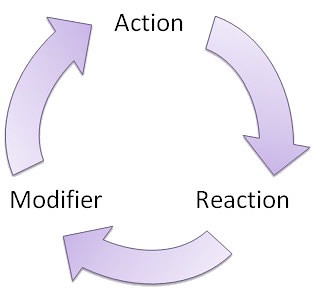I often hear people talking about adding elements of chance to an experience to make it more interesting. For instance, adding a random reward for doing a certain task in a system.
However, when does adding randomness turn into adding gambling elements? Well, we have to look at the definition of gambling and look at an example.
In the UK the Gambling Commision looks after all things related to gambling and has a long list of things that it considers to be gambling – http://www.gamblingcommission.gov.uk/for-the-public/What-is-gambling.aspx
There are 3 basic groups that gambling is sorted under in the UK
- Gaming.
- Betting.
- Participating in a lottery.
Whilst varied, they share a few commonalities. In general, gambling can be defined as risking something of value on an event that has a random outcome, or an outcome that is not totally under your control, for the chance of gaining something of value. In short, a game of chance that has something of value at risk and up for grabs.
Betting
An easy example of betting is roulette. You place a bet on what number or numbers you hope will come up, a wheel is spun and a ball is thrown onto it. When the wheel stops, the balls final resting place indicates the number that wins. There is no skill needed by the player, there is no way they can influence the outcome. The roulette wheel is just a fancy random number generator. An even simpler example would be the toss of a coin, heads or tails. Again, the player can’t influence the outcome of the toss, so it is again random.
Lottery
A lottery is an event where a person pays to be given the chance of winning something. For instance, the Lotto, where you buy a ticket with numbers you have chosen and each week random numbers are drawn, which if they match yours you win! Simple and definitely no skill involved. TOmbolas are the same, you buy a ticket and if it matches a random ticket drawn from the tombola, you win.
Gaming
There are some grey areas that the UK has chosen to place under the banner of Gaming. This includes things like Poker, where skill can influence the outcome of the game. Many Poker players would say that skill is the largest factor in the game, even a Judge in America agreed with that assertation. However, for the standard player, the random nature of the draw of cards is the biggest factor influencing the outcome of the game.
Gamblification
The addition of pure chance outcomes to gamification does not necessarily mean that you have created something that falls into the category of gambling. Strictly speaking, the player would need to risk something of value or pay something for the privilege.
However, what is something of value to a player? Often, that could just be time.
For instance, I saw a fitness club in town recently offering people the change to spin a “Wheel of Fortune”. If they were lucky, they would win some healthy shake thingy or maybe money off their first visit. I would call this gamblification as you are adding gambling element sot something pretty non-gambling orientated – talking to someone about joining a fitness club. However, my time is valuable. So if the only reason I have been encouraged to talk to them was to play the wheel of fortune, I am gambling something of value to me, my time, for the chance of winning something.
Whilst this may not be a problem, people could react badly to the thought that you are gambling with their time, so it is worth considering how much you feel this could have a positive impact on your own needs. In the case of the fitness club, more sign-ups.
My rule of thumb, don’t gamble with peoples patience or loyalty!
Similar Posts:
- Feedback Loops, Gamification and Employee Motivation
- Why Is Everyone Losing Their Minds Over Loot Crates?
- 5 tips for good Gamification I learned from designing games.


Also published on Medium.

